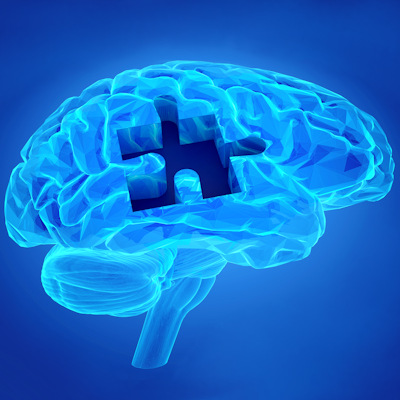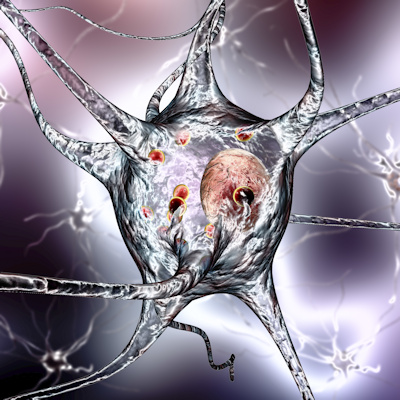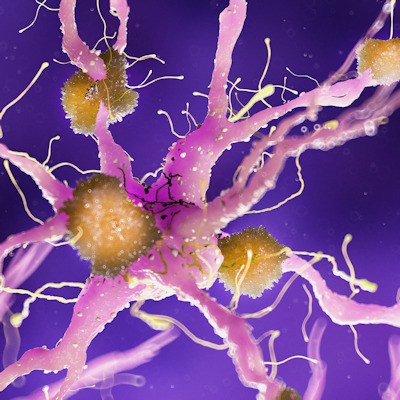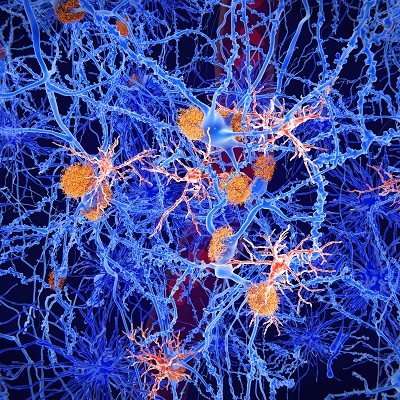March 1, 2023 -- A targeted protein degrader could break apart a kinase implicated in Alzheimer's disease to improve the cognitive abilities of patients with the neurodegenerative condition, according to a study published March 1 in ACS Central Science.
More than 20 years ago, researchers recognized that the protein, p38, is activated in Alzheimer's. Since the initial discovery, the intracellular protein has emerged as a drug target on the strength of evidence that its alpha isoform is associated with the formation of pathological amyloid-beta -- the plaques that are a focal point of Alzheimer's R&D -- inflammation and synaptic dysfunction.
EIP Pharma, having licensed a p38⍺ kinase inhibitor from Vertex Pharmaceuticals, is a leading proponent of the approach and recently received funding to run a phase IIb study in dementia with Lewy bodies. However, researchers at Kyung Hee University saw a need for a new way of targeting p38.
In the paper, the researchers describe the application of targeted protein degradation (TPD) to the p38 protein. TPD is an emerging therapeutic modality that has attracted the interest of companies including Pfizer because of its potential to target proteins that are considered to be "undruggable" by traditional small molecule therapeutics.
By tagging p38 for destruction, a TPD could lower levels of a protein implicated in Alzheimer's. However, specificity is crucial, because p38 belongs to a class of kinases that are vital to cellular survival. Off-target toxicity could render a drug candidate unviable. Multiple p38 inhibitors have failed on toxicity grounds.
Specificity concerns led the researchers to focus on a specific form of p38. The protein kinase undergoes post-translational modifications, including phosphorylation, to form p-p38. The addition of a phosphate group activates the protein and changes its shape. By targeting the activated form, the researchers tried to create a more specific treatment without the off-target toxicity associated with other molecules.
The compound screening process identified PRZ-18002 as the most promising candidate because of its selectivity for p-p38 over similar proteins. PRZ-18002 maintained its selectivity when tested against 96 protein kinases that are similar to p38.
Encouraged by the findings, the researchers tested the molecule in mouse models of Alzheimer's. The in vivo study showed PRZ-18002 downregulates the p38 pathway and improves cognitive abilities, including spatial reasoning. The researchers also tracked changes in disease-related brain chemistry, such as the accumulation of amyloid-beta plaques.
Three researchers involved in the project, Nam-Jung Kim, Kyung-Soo Inn, and Jong Kil Lee, now occupy C-suite posts at a TPD biotech, Prazer Therapeutics, that is working on indications including Alzheimer's.
Copyright © 2023 scienceboard.net











